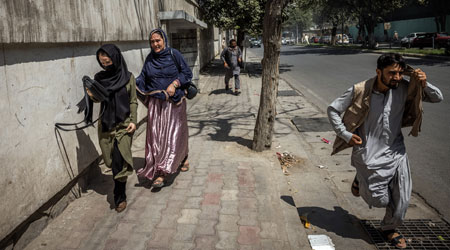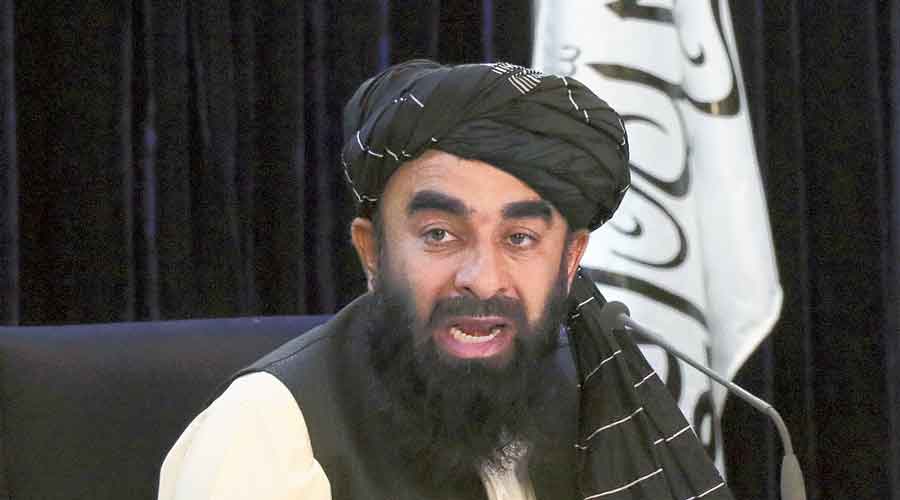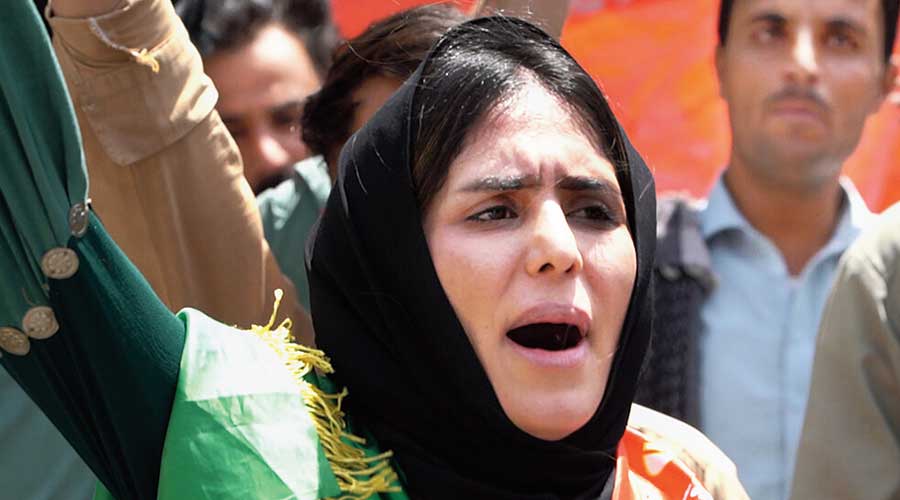Hundreds of women took to the streets of Kabul on Tuesday to demand that their rights be respected and were brutally sent scattering by the Taliban.
The protest made clear that Afghan women are unlikely to easily surrender the gains they have made over the past two decades. But it also offered a troubling signal that the Taliban may be determined to turn back the clock.
Hundreds of men and women shouting slogans such as “Long live the resistance” and “Death to Pakistan” marched in the streets to protest against the Taliban takeover.
Later in the day, the Taliban named Mullah Hasan Akhund, an associate of the movement’s late founder Mullah Omar, as the head of Afghanistan’s new government, with Mullah Abdul Ghani Baradar, head of the movement’s political office, as deputy. The appointments are in an acting capacity.
The appointments gave no indication of any concession towards protests that broke out in Kabul earlier in the day.
Tuesday’s demonstrators were peaceful, but as their numbers grew, and the women were joined by hundreds of men, the Taliban used force to crush a demonstration for the second time in less than a week.
They began beating protesters with rifle butts and sticks, witnesses said, and the crowd scattered after the fighters began firing into the air.
It was a remarkable public display by women, who suffered brutal subjugation the last time the Taliban were in charge of the country. Now, many fear that its professions of moderation notwithstanding, the group has not changed.
Rezai, 26, one of the coordinators and organisers of the latest protest, said the demonstration was organised in coordination with people trying to organise a national resistance to the Taliban.
Rezai said: “We invited people using social media platforms. And there were more people than we expected. We are expecting more rallies tonight because people do not want terror and destruction.
“The Taliban have had no achievements since they have taken power except for killing people and spreading terror. So it was an utterly self-motivated protest, and we just coordinated and invited people to participate.”
As they marched on Tuesday morning, they carried a banner with a single word: “Freedom.”
The women chanted the same word as they walked, the Taliban watching closely. They were joined by men, many condemning Pakistan for what they view as its support for the Taliban and interference in Afghan affairs.
“We are not defending our right for a job or a position we will work in, we are defending the blood of our youth, we are defending our country, our land,” one woman said, according to video posted on social media.
Witnesses reported Taliban fighters beating demonstrators with clubs and rifle butts. Tolo TV, a leading Afghan broadcaster, said one of its cameramen covering the protests was briefly detained by the Taliban.
As a photographer for The New York Times approached the demonstration on a street outside the presidential palace, known as the Arg, a convoy of at least a dozen Taliban pickup trucks raced towards the crowd.
As soon as the Taliban fighters dismounted their trucks, they started shooting — mostly into the air, it seemed. There were no immediate reports of severe injuries or fatalities.
The people — who appeared to number several hundred — started running.
The large gathering was over. A short while later, when some of the male protesters gathered in a small group and started shouting pro-resistance slogans, the Taliban chased them away.
A group of Afghan women crouched on the side of a Kabul street and took cover after armed members of the Taliban fired shots into the air.
One of them spoke rapidly at the camera filming them. “These people (the Taliban) are very unjust, and they are not human at all,” she said. “They do not give us the right to demonstrate; they are not Muslims but infidels.”
Heavy gunfire resumed, leading to more panic.
The protests, nearly a month after the Taliban seized control of Kabul, along with daily, smaller demonstrations around the country often led by women, pose a challenge to the new Afghan government announced late on Tuesday.
The hardline Islamist group has urged Afghans to be patient, allowing it time to form a government before it addresses people’s demands.
The last time the Taliban ruled Afghanistan, from 1996-2001, girls could not attend school and women were banned from work and education. Religious police would flog anyone breaking the rules, and public executions were carried out.
The group has promised to be more tolerant this time — a commitment many Afghans and foreign donors will be monitoring closely.
Female students in the western city of Herat said they would lobby loudly for greater representation in the new government and for their rights to be respected.
“Women have to come out to save our jobs and status in society. It is really a now-or-never situation,” said Dariya Imani, a student at a business school at Herat University.
She said her cousins were part of the protest in Kabul on Tuesday.
“We are not brave, we are just desperate to protect our basic rights,” Imani said.














